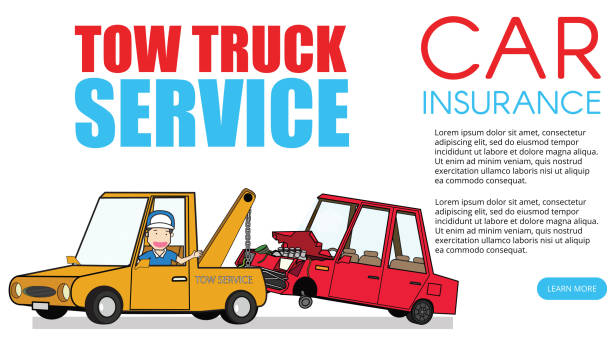Starting a tow truck business can be a lucrative venture due to the constant demand for vehicle recovery and roadside assistance services. From understanding the ins and outs of the industry to navigating the legal framework and marketing your business, several key steps must be carefully planned and executed. With the right approach and detailed preparation, entrepreneurs can establish a successful tow truck service that stands out in the market. If you’re considering venturing into this field, a clear roadmap is essential to make informed decisions and overcome the inevitable challenges. Below, we’ll explore the foundational aspects of starting a tow truck business and the best practices to thrive within the trade.
Purchasing the Right Tow Trucks and Equipment
When choosing tow trucks, prioritize quality and reliability to ensure safety and minimize downtime. Tailor your selection to fit the towing services you offer, whether light-duty or heavy loads. Equipping trucks with essential tools like LED lights enhances visibility, crucial for safe operations, especially in low light or bad weather.
Investing in reliable GPS and communication tech boosts dispatch efficiency, improving response times. Regular staff training ensures safe and efficient equipment use. Consider maintenance costs and eco-friendly options, which can appeal to environmentally conscious customers seeking installment loans in Canada for LED lights and other needs.
Crafting Your Tow Truck Business Plan
A well-structured business plan is crucial for the tow truck industry’s success. It should outline goals, strategies, and steps to achieve them, including detailed financial projections. The plan should also outline the company’s structure, which can impact operational efficiency and tax liabilities. The legal structure, whether sole proprietorship, LLC, or corporation, will determine paperwork and regulations.
A comprehensive human resource plan should include recruitment strategies, training programs, and employee management systems. Well-trained and motivated employees are essential for providing excellent customer service and building a reputation for reliability and professionalism. A marketing strategy is also vital, as attracting customers requires understanding the target audience and tailoring marketing efforts to their specific needs.
Navigating Legal Requirements and Insurance for Tow Trucks
The tow truck industry is highly regulated, and adherence to legal and safety requirements is crucial. Acquiring permits and licenses is a key step in legitimizing your business, which may include local business licenses, special tow truck operation permits, and compliance with state regulations. Insurance is another critical consideration, protecting your business against liability and risks.
Insurance requirements can vary widely, so it’s essential to research and consult with an insurance agent specializing in commercial automotive policies. Understanding the implications of transporting different types of vehicles can influence the type of insurance needed and permits required. Adopting a proactive approach to compliance not only avoids legal pitfalls but also showcases professionalism, potentially attracting more customers and business partners.
Understanding the Tow Truck Industry and Market Analysis
To succeed in the tow truck industry, it’s crucial to understand market dynamics, research local demand, competitors, and potential client niches. Key services like emergency towing, vehicle removal, and roadside assistance are in high demand, and businesses can offer unique value by offering these services. Market analysis should also consider demographics, seasonal trends, and economic factors influencing the target market.
Technology plays a significant role in shaping the industry, with consumers demanding quick response times and efficient services. Staying updated with technological advancements, such as online platforms, can improve dispatch operations and customer engagement. Secondary needs like after-hours storage and repair services can also provide additional revenue streams. A comprehensive business plan should cover all bases before investing time and resources. By understanding every aspect of the tow truck industry, businesses can create a successful business model that meets customer expectations and ensures long-term success.
Marketing Strategies for Your Tow Truck Business
To attract and maintain a loyal customer base, your tow truck business should effectively market itself through various channels like a well-maintained website, social media engagement, and local SEO practices. Delivering a consistent message across all platforms is crucial for maintaining brand identity.
Partnering with local businesses and automotive repair shops can generate referrals and increase business. Offering exceptional customer service is essential, as satisfied customers are likely to recommend your services. Implementing a customer feedback system can identify areas for improvement. Promoting with loyalty discounts, referral programs, or introductory offers can also attract new customers.
Overall, a tow truck business holds promising potential when executed with careful planning and strategic action. By understanding the industry, drawing up a meticulous business plan, navigating legal frameworks, purchasing reliable equipment, and building a strong marketing presence, entrepreneurs can set themselves up for success in this demanding but rewarding arena. It’s a challenging venture, but with the right approach and dedication, your tow Truck business can grow to become a recognized and trusted service provider in your community.



